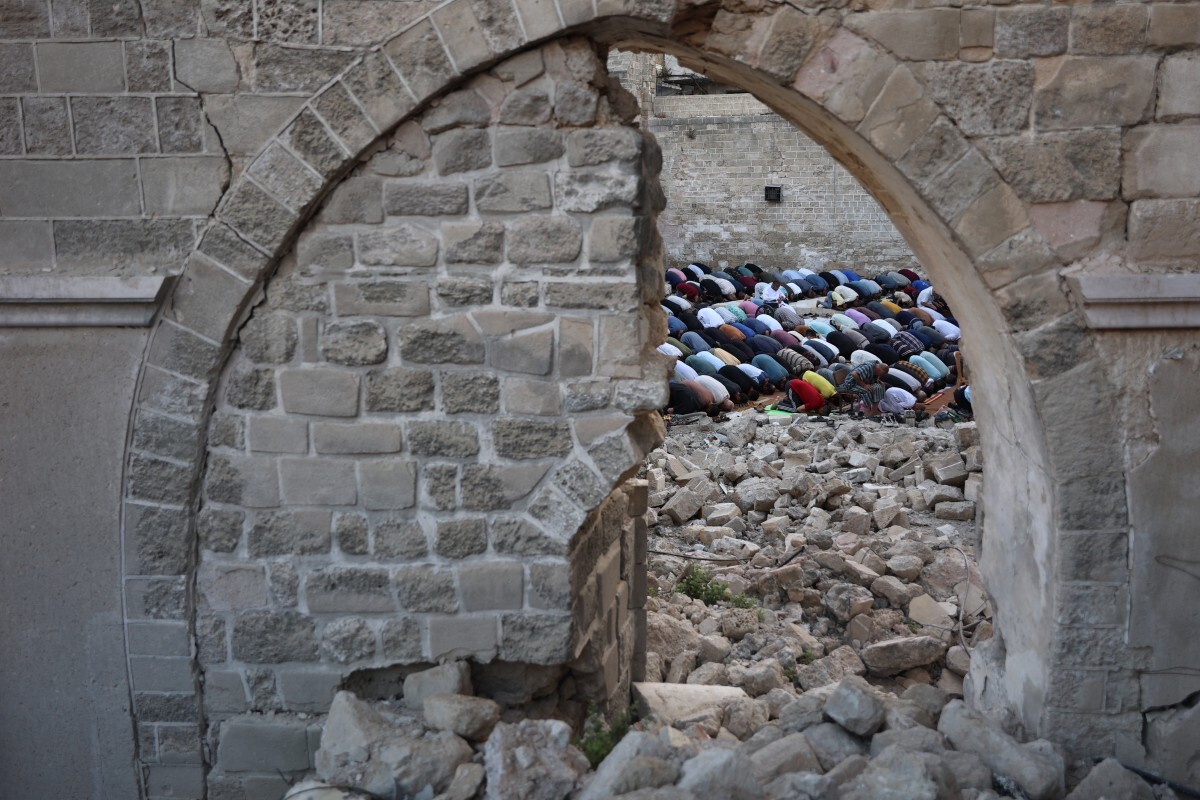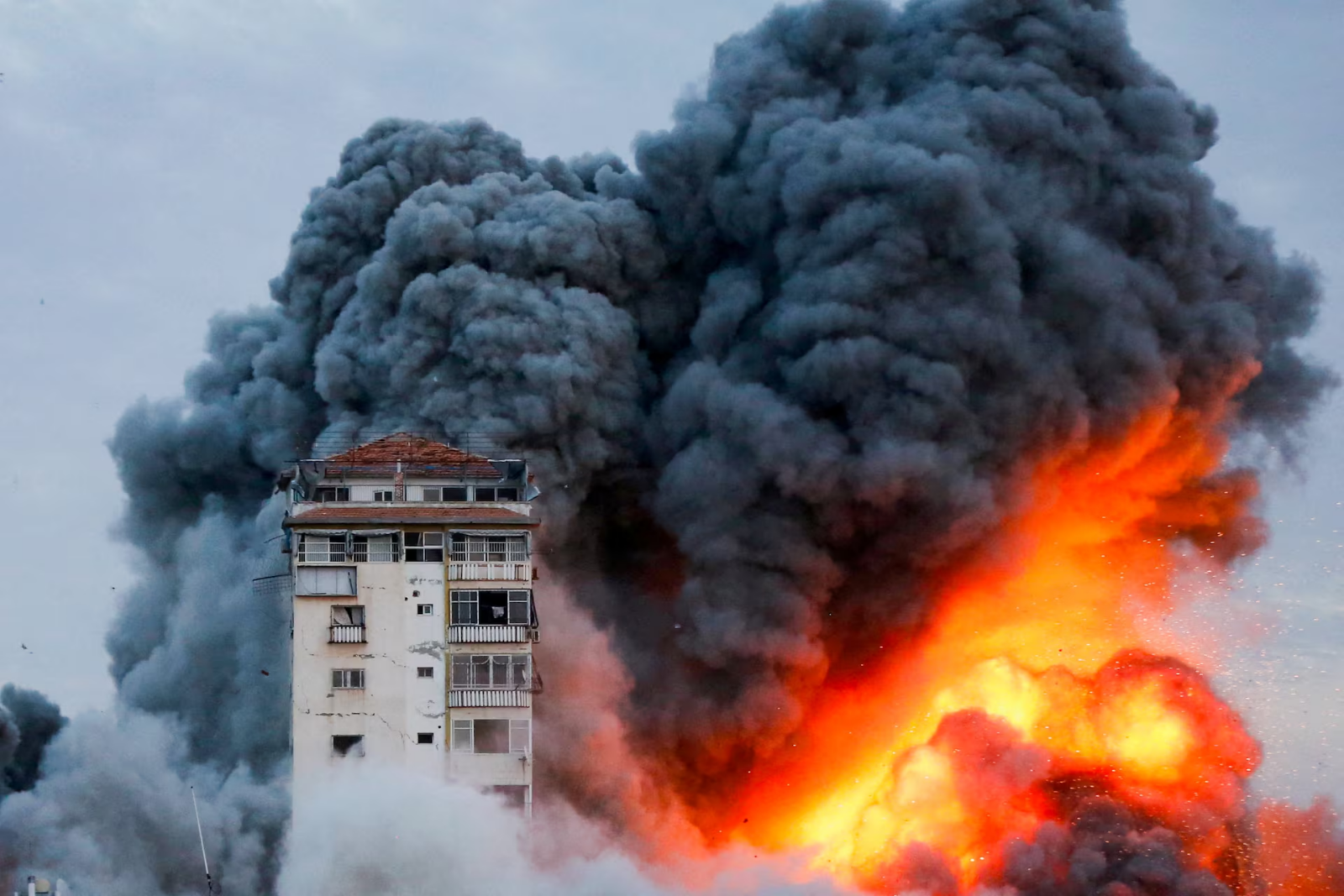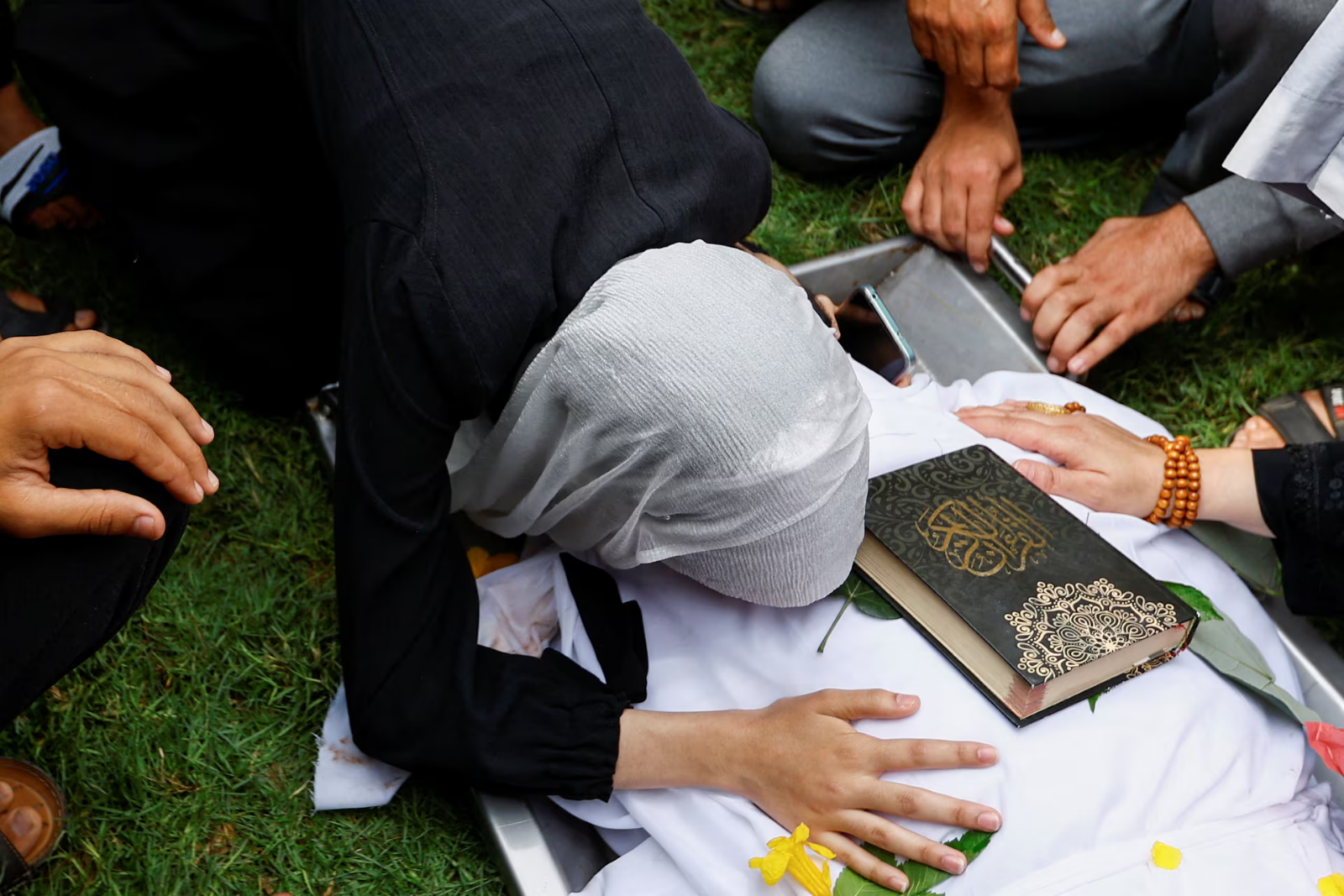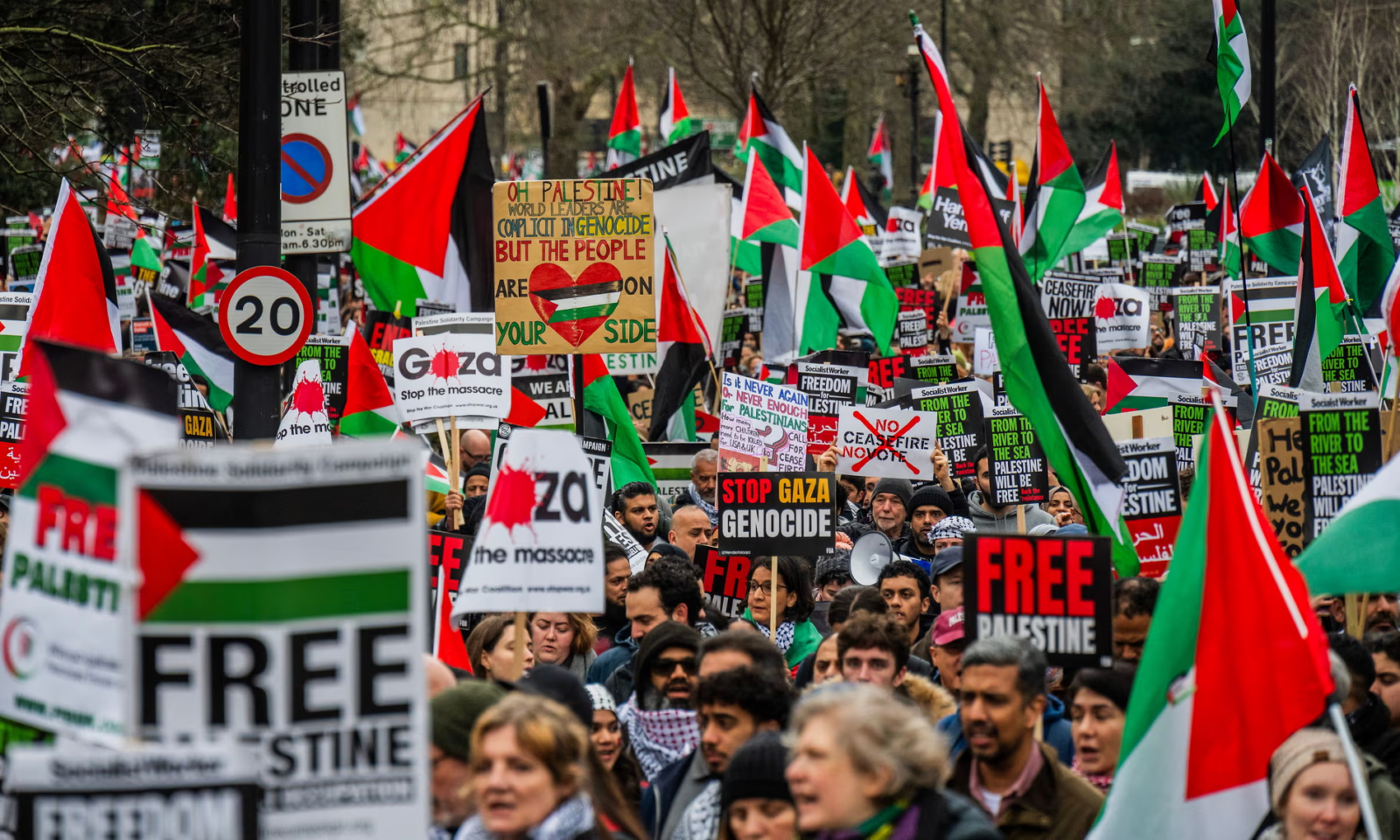Gaza not celebrating Eids since 1967: A historical comparison of past, present
 Palestinians perform the Eid al-Adha morning prayer in the courtyard of Gaza City's historic Omari Mosque, which was heavily damaged in Israeli bombardment, June 16, 2024. (AFP Photo)
Palestinians perform the Eid al-Adha morning prayer in the courtyard of Gaza City's historic Omari Mosque, which was heavily damaged in Israeli bombardment, June 16, 2024. (AFP Photo)
Palestinians in Gaza and the West Bank on Sunday started to observe a solemn Eid al-Adha amid ongoing Israeli military attacks, now spanning more than eight months into the conflict.
Türkiye Today asked experts to opine on the Eid in Palestine shadowed by war.
The first expert, Kadir Ertac Celik – associate professor at Ankara Haci Bayram Veli University with a Ph.D. from Gazi University’s Social Sciences Institute – emphasized that this Eid will be remembered as a dark period in history for Palestinian Muslims, who continue to suffer genocide, captivity and oppression.
History of turmoil
Peaceful festivities and religious celebrations have disappeared from the minds of Palestinians for a long time.
Some would say that since World War I when the Ottoman Empire had to withdraw from the Middle East and Pax Ottomana – derived from Pax Romana and means Ottoman Peace, a period of regional peace and stability – came to an end. Both during the British occupation and the Israeli occupation periods, peace has not been achieved in the region, which has its fair share of bloodshed and tears.
Impact of Arab-Israeli conflict
However, the real issue began in 1947 when the Arab-Israeli conflict started, and life turned into a nightmare for Palestinians. During the occupation era that began afterward with the violation of the 1967 borders, Palestinians have spent their years under bombardment and siege, although they have occasionally experienced calm periods.
Therefore, since 1967, holidays for Palestinians, like their daily lives, have not been a true holiday.
Kadir Ertac Celik
Gaza Strip: A humanitarian crisis
On the other hand, there is an issue in the Gaza Strip that exacerbates this situation even further. That is Hamas taking control of the Gaza Strip by winning the 2007 elections. Despite being a legitimate election, the international community did not recognize Hamas’ victory and turned a blind eye to Israel making the Gaza Strip an open-air prison.
Since 2007, 2.3 million people have been squeezed into an area of 363 square kilometers (140 square miles), abandoned to Israel’s conscience.
Kadir Ertac Celik

Since then, Israel has periodically prevented people living under a blockade in the Gaza Strip from accessing electricity and water, and has bombed the Strip for days during conflicts. The latest of these conflicts has been ongoing since Oct. 7.
More than 37,000 civilians, mostly women and children, have been killed, and the attacks have reached the dimensions of genocide.

Continued oppression, violence
Unfortunately, despite it being a holiday, in Palestine, Israel’s state terrorism and persecution policies continue.
This policy, as known, has transformed into a crime against humanity and unquestionably evolved into genocide.
Kadir Ertac Celik
The Israeli government, dominated by radical Zionist thinking, has imposed all kinds of obstacles and oppression to even prevent the Palestinian Muslim population from performing Eid prayers at Al-Aqsa Mosque during Eid al-Adha.
The same policy has been obstructing worshippers from performing Friday prayers for some time. While attempting to prevent Muslims from entering their holy places and worshiping, Israel continues its attacks on Rafah and Gaza, killing innocent people even during the holiday.

Eid symbol of suffering
This Eid will also be remembered in history as a dark period for Palestinian Muslims who are subjected to genocide under captivity and oppression.
Kadir Ertac Celik
For Palestinians to fully observe their religious holidays, Israel’s genocide practices must cease, and the oppression policy in Palestine must be stopped. Resolving this issue with temporary cease-fires seems highly improbable. In this context, a genuine two-state solution should be implemented, and a fair decision should be made regarding the status of Al-Aqsa Mosque.
The second expert, Palestinian journalist Tevfik Alhamss painted a stark picture of the current situation in Palestine, where discussion of holidays and celebrations feel out-of-place amid ongoing challenges.

According to Alhamss, the only recognizable aspect of the holiday season is the Eid prayer. In Gaza, devastated by over 37,000 Palestinian casualties, people gathered amid the rubble for prayers on Sunday. Alhamss pointed out to Türkiye Today that due to severe economic and physical constraints, the tradition of sacrificing animals for Eid has also become an impossibility.
Economic, physical barriers to Eid traditions
The country’s embargo prevents essential supplies from entering, exacerbating an already dire situation.
Furthermore, Alhamss reports that after enduring eight months of economic hardship, the populace no longer has the financial means to purchase sacrificial animals, whose prices have skyrocketed to $15,000.
Separated families
Beyond the economic hardships, Alhamss emphasizes the profound impact of the ongoing conflict on family life.
Many families have been torn apart, with some members seeking refuge in different parts of the country, further complicating the possibility of traditional family gatherings during Eid.
Tevfik Alhamss
For those who remain, life is a daily struggle for survival, often lived under the harsh conditions of makeshift tents.

Hope for peace: Eid and call for cease-fire
Reflecting on the broader implications for Palestine, Alhamss underscores that Eid festivities can only be restored with a sustainable cease-fire, which would provide a much-needed respite for the population. Until then, the daily challenges faced by Palestinians overshadow any semblance of traditional holiday celebrations, leaving families to navigate a reality fraught with uncertainty and hardship.



